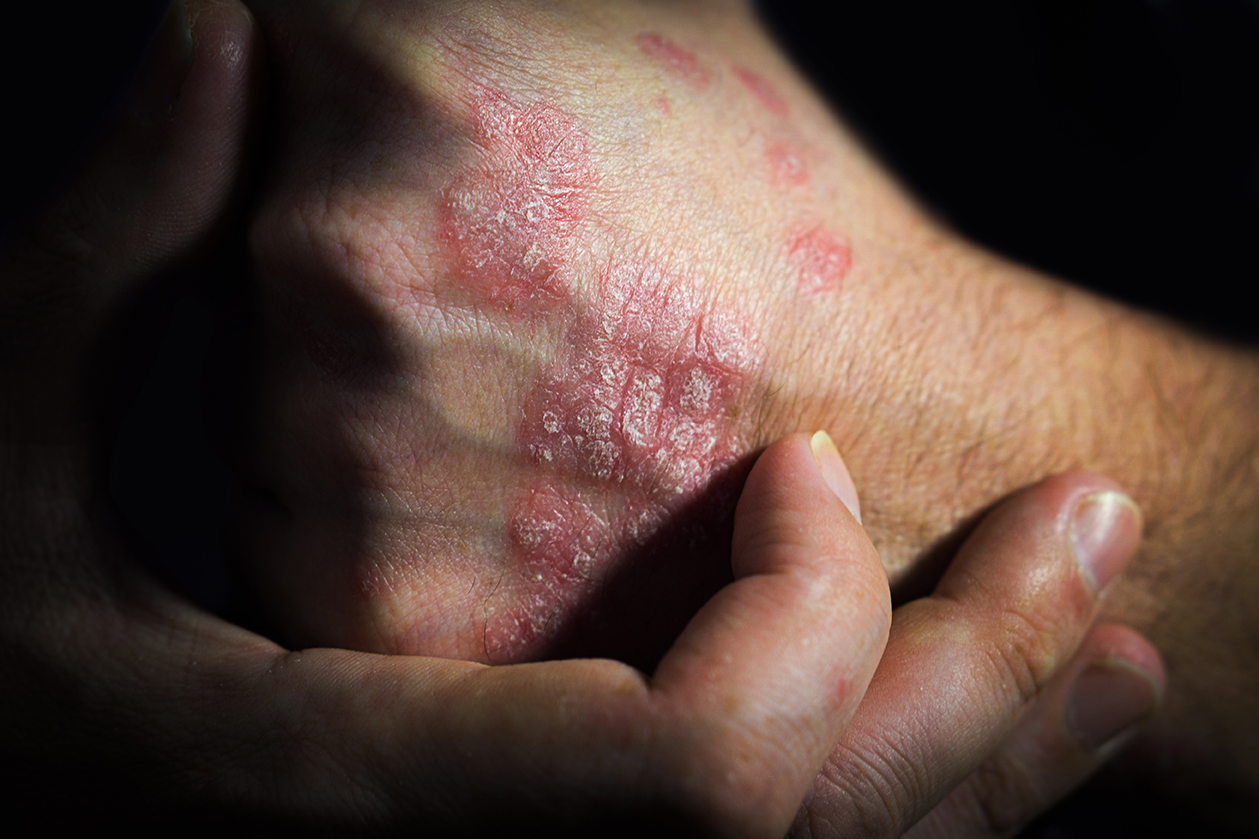
What Is Psoriasis?
Psoriasis is a chronic, inflammatory, genetic condition causing overgrowth of skin cells and inflammation on the skin surface. Because it is part of your genetic makeup, psoriasis is not cured but it is managed. We now also think of psoriasis as a systemic disease. Up to 40% of patients with psoriasis may have psoriasis in their joints, causing unusual joint pains, especially with rest. And patients, particularly with severe psoriasis, have been found to have a greater risk of stroke and heart disease.
What Are the Symptoms of Psoriasis?
Psoriasis commonly presents with symmetrically distributed red, scaly plaques with overlying shiny scale. These plaques can be anywhere on the body but commonly present on the scalp, ear canals, knees, elbows, belly button, and the genitals. Nail involvement may present at pitting, yellow-brown discoloration, or general abnormal nail growth.
How Is Psoriasis Diagnosed?
Your dermatologist will ask for a thorough medical history and also perform a visual examination of your skin. In less typical cases, a skin biopsy, where the skin is locally numbed, may be taken to determine the exact diagnosis. There are some medications known to cause psoriasis and your full medication list will need to be reviewed.
How is psoriasis treated?
When there is limited skin surface area involvement and no signs of systemic disease, we will often treat with topical medications. Your dermatologist will prescribe the combination of topicals needed to treat your disease. Phototherapy (a controlled in office UV light based treatment) could also be considered in skin only disease. Take care to prevent injury to the skin (including deep scratching of the skin and traumatically removing the scale of the psoriasis) as the disease will increase in the setting of injury.
If there is evidence of systemic disease, or there is widespread involvement, or the affected areas of the body are affecting the quality of life, systemic medications will be discussed. There are multiple treatment options that will be reviewed to see which treatment works best for you. Factors such as obesity, excessive alcohol use, and smoking do seem to be associated with worse cases of psoriasis and we will address these issues as well since they also add to cardiovascular risk.
Where should I go for diagnosis and management of psoriasis in Ashburn?
At Clear Dermatology, we are experts in the diagnosis and treatment of psoriasis. If you have a rash that you feel fits the description of psoriasis, please contact us at 703-996-4000 to schedule your appointment to evaluate and treat your condition. We want to get you back to feeling like you are living your life and not living through a disease.
